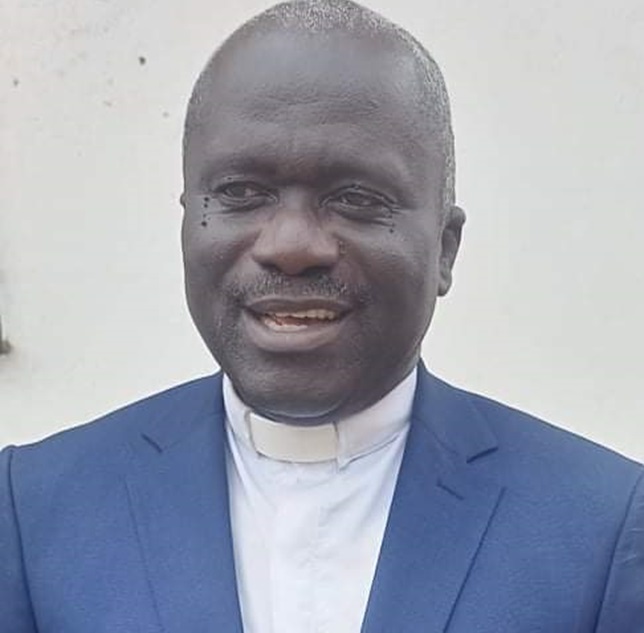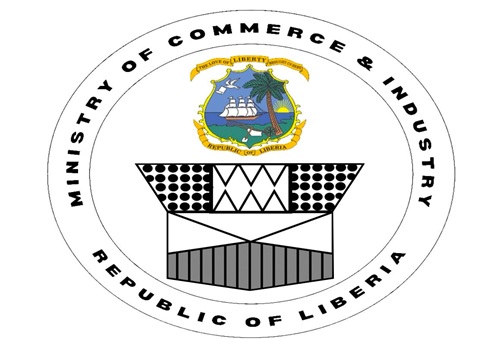By Bishop Kortu K. Brown
To God be the Glory! The civil war met me, my wife and our little children in Tubmanburg, Bomi County in 1990. My wife agreed with me that we shouldn’t flee the country. Before the erstwhile warring faction, NPFL entered Tubmanburg originally called Bomi Hills before 1971, the Armed Forces of Liberia (AFL) through their 6th Battalion controlled the area – I mean the whole western region of the country. Then on July 31, 1990, that changed. The invading force entered the city of probably more than 20,000 people and dislodged the national army forces. We heard gun sounds for about 8 hours, beginning from around 6:00 in the morning. The atmosphere was unexpected, fearful, and uncertain. We laid on the floor for several hours. Then we later heard after 2:00 in the afternoon that we should report ourselves to the local police station building to meet with the command of the warring force that had captured and was now in controlled of the area.
On the way to the police station, dead bodies laid on parts of the road leading from the northwestern part of City called Faltorma Compound where we resided through a piece of road called “Waterside” onto the C. H. Dewey Central High School road that leads to the Police Station. On arrival, we didn’t know what to expect; however, we noticed the ex-fighters also took interest in knowing people’s names. After waiting awhile and helping clarified names that interested the ‘new authorities’, we were all told to go back home and await further instructions. In the next few days, the town was “combed” for so-called offenders and AFL soldiers. We also saw the healthcare workers at the local government hospital wear new identification badges while people searched for food in everywhere.
The dire situation notwithstanding, some local churches thought to work a way around keeping their doors open for prayer, fellowship and mutual support. By October/November, we had developed sufficiently through consultations and interactions to decide to formalize the local Christian community to be able to help address some of the social challenges the community faced. We met on the United Pentecostal Church Campus and decided to hold a “New Year Watch” on December 31, 1990 to usher in the new-year, 1991. That service was held at the A.B. Anderson Memorial United Methodist Church. It was addressed by the late Bishop Joseph K. Garway of the Pentecostal Churches of the Apostolic Faith (PCAFA) who was also taking refuge with his family in the area
In January 1991, we made contact with the Liberia Council of Churches (LCC) through the late Dr. John Reed of the Christ Lutheran Church in Tubmanburg. At the time, he was also a volunteer of the local Red Cross and commuted between Tubmanburg and Monrovia. [John and I also worked in the mid-80s on the formation of a local chapter of the National Students Christian Council (NSCC) in Tubmanburg and participated in the 1984 retreat at the S. Trowen Nagbe Retreat Center in White Plains, rural Montserrado]. The LCC general secretary, the late Rev. Steven W. Muin reached out and contacted us. A collaboration developed between the local Christian community which had already being named the “Concerned Christian Community” (CCC) and the LCC. In the latter months, we invited the honorable General Secretary to visit with the Christian community and explored further means of collaboration and fellowship which invitation he gladly accepted
By January 1992, the late hardworking and dedicated general secretary of the LCC decided to visit with the Christian community in Tubmanburg, Bomi County. Every effort was made to ensure that the visit went smooth. The churches were mobilized for a meeting at the Elijah Baptist Church and the civilian and military authorities in the area including the ‘County Superintendent’ were written and informed of the visit. I remembered walking towards the center of town with my folder in my hand excited about the visit of the LCC general secretary. Suddenly, all that excitement got erased. While we waited at the meeting church, Rev. Muin, on arrival in Tubmanburg, was intercepted by the military authorities of the erstwhile NPFL, the warring faction that controlled the area and accused of being a “spy”. When he contended that he had been invited by the Christian community, they accused me of inviting people into their territory without informing them. I immediately opened my folder and begun reading out copies of the letters we had sent to them informing them of the visit of the Liberia Council of Churches general secretary. That one action saved me from arrest and incarceration by God’s grace.
But the clarifications didn’t save Rev. Muin. His vehicle was already confiscated. He himself was pushed onto another car and driven away by the fighters towards the Grand Cape Mount County border with the Republic of Sierra Leone. When we couldn’t see our way through, we mobilized the members of the Christian community and assembled in the downtown community of VAI Town in Tubmanburg praying, singing and praising God. As the clock clicked passed mid-night, one of the “Generals” of the erstwhile NPFL returned to the town. We marched towards where he was headed – the Compound of ELWA. The former county Superintendent, the late Honorable A. B. Anderson, Jr., and I advanced towards his ‘gate’ and called our names when they demanded. He assured us of his intervention after we made our case.
In that late night, Rev. Muin was returned to Tubmanburg and imprisoned at their detention center. A young resident, Joseph Lebbie who was volunteering there, noticed him – as the Bishop from the LCC who was arrested – and took him home that night to return him in the morning. We later realized that the commander who ordered him released was the same man who ‘abducted’ him and took him to the border to intimidate him, accusing him of being a spy working against the interest of the NPFL. What would have happened to me as a local resident if I didn’t have copies of the letters that I wrote to the local authorities informing them of the visit?






